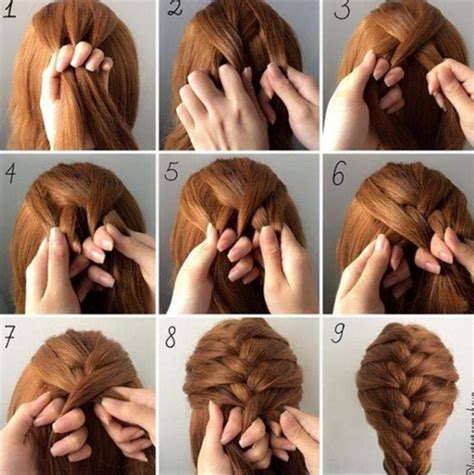Discover the latest advances in hair regrowth treatments, effective scalp and hair care tips, and lifestyle changes for managing alopecia-related hair loss. Support and resources for women with alopecia.
Understanding Alopecia and Thinning Hair
Contents
Understanding Alopecia and Thinning Hair
Alopecia is a condition that results in the loss of hair on the scalp and sometimes on the body. It can affect anyone regardless of age, gender, or ethnicity. The most common cause of alopecia is an autoimmune disorder that causes the body’s immune system to attack its own hair follicles, resulting in hair loss. Thinning hair, on the other hand, is a condition that occurs when the hair becomes visibly less dense than usual, leading to a reduction in volume and thickness.
There are various types of alopecia, including alopecia areata, alopecia totalis, and alopecia universalis. Alopecia areata causes patchy hair loss on the scalp, while alopecia totalis results in total hair loss on the scalp, and alopecia universalis causes complete hair loss on the scalp and body. Thinning hair, on the other hand, can be caused by a variety of factors, including genetics, hormonal changes, stress, and certain medical conditions.
It’s important to understand that alopecia and thinning hair can have a significant impact on an individual’s self-esteem and quality of life. Many people with alopecia experience feelings of shame, embarrassment, and low self-confidence, while individuals with thinning hair may feel self-conscious about their appearance. Seeking support from a healthcare professional, such as a dermatologist or trichologist, can help individuals with alopecia and thinning hair better understand their condition and explore potential treatment options.
In conclusion, alopecia and thinning hair are complex conditions that can have a profound impact on an individual’s well-being. By gaining a better understanding of these conditions and seeking appropriate support and resources, individuals with alopecia and thinning hair can take proactive steps towards managing their condition and improving their overall quality of life.
The Latest Advances in Hair Regrowth Treatments
When it comes to dealing with hair loss, especially for women with Alopecia, it can be a challenging and emotional journey. However, thanks to the latest advances in hair regrowth treatments, there is new hope for those struggling with thinning hair and bald patches. These innovative treatments offer a range of options for women looking to enhance hair growth and improve overall scalp health.
One of the most promising hair regrowth treatments available today is low-level laser therapy (LLLT). This non-invasive procedure involves using light energy to stimulate hair follicles, promoting hair growth and improving the overall health of the scalp. LLLT has shown promising results in clinical studies and is considered a safe and effective option for women with Alopecia.
Another exciting advancement in hair regrowth treatments is the use of platelet-rich plasma (PRP) therapy. This procedure involves extracting the patient’s own blood, processing it to concentrate the platelets, and then injecting the PRP into the scalp to stimulate hair growth. PRP has been shown to be particularly effective in treating Alopecia and can help improve hair density and thickness.
In addition to these innovative treatments, there are also topical solutions that have been developed to help promote hair growth in women with Alopecia. These include minoxidil and topical spironolactone, which have been shown to be effective in promoting hair regrowth and preventing further hair loss.
Overall, the latest advances in hair regrowth treatments offer new hope for women struggling with Alopecia and thinning hair. Whether it’s through innovative procedures like LLLT and PRP therapy, or the use of topical solutions, there are now more options available than ever before to help women enhance their hair growth and regain confidence.
Effective Scalp and Hair Care Tips
Effective Scalp and Hair Care Tips
For women experiencing alopecia and thinning hair, it is essential to pay extra attention to scalp and hair care in order to promote hair regrowth and maintain overall hair health. One of the most important tips for effective scalp and hair care is to use gentle, sulfate-free shampoos and conditioners that are specifically designed for thinning hair. These products can help to clean the scalp and hair without stripping away natural oils or causing further damage to fragile hair follicles.
Additionally, incorporating scalp massages into your hair care routine can be highly beneficial for promoting blood circulation to the scalp, which in turn can stimulate hair growth. Using a nourishing oil such as coconut oil or argan oil during scalp massages can provide extra hydration and nourishment to the scalp and hair follicles.
It is also important to practice gentle hair handling to prevent further damage to thinning hair. Avoiding tight hairstyles or excessive heat styling can help to minimize breakage and preserve the existing hair. Furthermore, keeping a balanced diet rich in essential vitamins and nutrients, such as biotin, vitamin E, and omega-3 fatty acids, can support overall hair health and potentially aid in hair regrowth.
Finally, seeking professional advice and support from a dermatologist or trichologist can provide tailored recommendations for scalp and hair care based on individual needs and conditions. Don’t hesitate to reach out for help and guidance in managing alopecia-related hair loss.
Lifestyle Changes for Managing Alopecia-Related Hair Loss
Living with alopecia can be a challenging experience, especially for women who may feel pressured to conform to traditional beauty standards. However, there are several lifestyle changes that can help manage alopecia-related hair loss and promote overall well-being.
First and foremost, it’s important to prioritize stress management as high stress levels have been linked to exacerbating hair loss in individuals with alopecia. Engaging in regular exercise, mindfulness practices such as yoga or meditation, and seeking support from friends and family can all contribute to reducing stress levels.
Dietary changes can also play a significant role in managing alopecia-related hair loss. Consuming a well-balanced diet rich in essential nutrients such as iron, protein, and vitamins can support healthy hair growth. Additionally, staying hydrated and limiting consumption of processed and sugary foods can also contribute to overall hair health.
Furthermore, adopting gentle hair care practices can help minimize damage and breakage in individuals with alopecia. This includes using mild shampoos and conditioners, avoiding excessive heat styling, and using gentle hair accessories that won’t pull or tug at the hair follicles.
Lastly, seeking professional support from dermatologists or trichologists can provide personalized recommendations for managing alopecia-related hair loss. They can offer treatment options such as minoxidil or PRP therapy tailored to individual needs, as well as provide advice on scalp care and hair maintenance.
Support and Resources for Women with Alopecia
Women who are dealing with alopecia often face a lot of emotional and psychological challenges. It can be a difficult experience to lose hair, and many women struggle with self-esteem and confidence as a result. However, it’s important to know that you are not alone in this journey. There are numerous support groups and resources available for women with alopecia, and seeking out these can make a significant difference in how you cope with the condition.
One of the best places to start is by connecting with other women who are going through similar experiences. Joining a support group for women with alopecia can provide you with a sense of community and understanding that is invaluable. You’ll be able to share stories, seek advice, and offer support to others who are facing the same challenges.
In addition to support groups, there are also numerous online forums and social media communities dedicated to women with alopecia. These platforms offer a safe space for women to connect, share, and learn from one another. It’s a great way to find solidarity and gain practical insights from those who have been through similar experiences.
Another important resource for women with alopecia is professional counseling. Dealing with hair loss can take a toll on your mental health, and seeking the help of a trained therapist or counselor can provide you with the tools and coping strategies you need to navigate through this challenging time.
Lastly, it’s important to stay informed about the latest treatment options and advances in the field of hair regrowth. Keeping up with specialized organizations and websites that focus on alopecia can provide you with valuable information and insights into new treatment breakthroughs.













